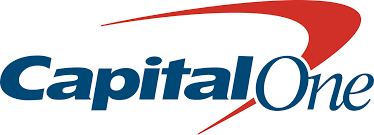What business banking services does Capital One offer?

Capital One provides a comprehensive suite of business banking services to cater to various banking needs. The bank’s offerings encompass business bank accounts, credit card options, money market accounts, and tailored business loans to support the financial requirements of businesses. Capital One has branches primarily in New York, Louisiana, Texas, Maryland, Virginia, New Jersey, and the District of Columbia.
Business Bank Accounts
Capital One offers a range of business bank accounts designed to meet the diverse needs of businesses. These accounts provide essential features such as online banking, mobile deposit, and cash flow management tools, enabling businesses to manage their finances efficiently. Capital One 360 Checking has no minimum opening deposit and no monthly fees. Capital One provides CDs with terms from six months to five years and no minimum deposit.
Capital One 360 Checking has no minimum opening deposit and no monthly fees. Business bank accounts include:
- Business Basic Checking.
- Business Unlimited Checking.
- Business Interest Checking.
- Business High-Yield Savings Account.
Business Credit Cards
In addition to bank accounts, Capital One offers a selection of business credit cards tailored to different types of businesses. These credit cards come with benefits such as cashback rewards, travel perks, and expense-tracking features that align with businesses’ specific spending patterns and preferences.
Business Loans
Capital One’s business banking products include specialized loans to address businesses’ unique financial requirements. The bank provides flexible business loan options for various purposes, such as expansion, equipment purchases, or working capital needs.
SBA Loans
Capital One offers Small Business Administration (SBA) loans as part of its commitment to supporting small businesses. These government-backed loans are designed to provide affordable financing solutions for initiatives like real estate acquisition or expansion projects.
What business banking services does Wells Fargo offer?

Wells Fargo offers a diverse range of business banking services to cater to the unique needs of businesses. Let’s explore the various offerings provided by this renowned bank. Wells Fargo has more than 5,600 retail branches and more than 11,000 ATMs nationwide. In-person branches can be beneficial when your business needs to deposit cash.
Business Bank Accounts
Wells Fargo provides an array of business bank accounts, each tailored to suit different types of businesses. These accounts come with various features and benefits designed to support businesses’ financial operations, whether small, medium, or large. Most options include tools for direct deposits.
Wells Fargo offers two savings accounts: the Way2Save Savings account and the Platinum Savings account. Both savings accounts require a $25 minimum opening deposit.
Available Wells Fargo business bank accounts include:
- Business Choice Checking.
- Platinum Business Checking.
- Analyzed Business Checking.
- Simple Business Checking.
- Business Market Rate Savings.
- Business Time Account (CD).
Business Loans
In addition to business bank accounts, Wells Fargo extends its support by offering business loans. These loans include SBA loans, which are particularly beneficial for businesses seeking opportunities for growth and expansion. Wells Fargo also provides equipment financing.
Business Credit Cards and Other Banking Products
Understanding the diverse banking needs of businesses, Wells Fargo also offers business credit cards and other banking products. These financial tools are crafted to provide convenient solutions for managing expenses and facilitating everyday transactions within business operations.
What are the benefits and drawbacks of Capital One?
Capital One’s business banking services offer a range of benefits for entrepreneurs and business owners. With tailored business credit card options, businesses can efficiently manage expenses and earn rewards for their spending.
Capital One’s competitive credit limits ensure that businesses with solid credit ratings have access to the funds they need with favorable terms. Capital One’s diverse banking products and services go beyond credit cards, offering checking accounts and savings options with attractive interest rates. Capital One provides a 360 Savings account with a 3.60% APY and no minimum deposit requirement.
The availability of innovative digital banking tools further enhances the banking experience for modern businesses. Capital One’s business banking services provide flexibility, financial support, and efficient expense management for businesses of all sizes.
One drawback of Capital One’s business banking services is the limited physical presence. While Capital One offers online and mobile banking, its branch network is smaller than traditional banks.
This can be a drawback for businesses that prefer in-person interactions or need access to physical bank locations for services like cash deposits or large transactions. Additionally, some customers may find that Capital One’s business banking services have higher fees than other banks, which can disadvantage small businesses or startups with limited funds.
Finally, Capital One’s business banking services may not offer a more robust range of financial products and services than larger, more established banks, which could limit the options available to business customers.
Capital One Pros & Cons
Pros:
- Competitive interest rates.
- User-friendly online and mobile banking platforms.
- Wide range of business credit card options.
- Access to a network of over 39,000 ATMs.
- Dedicated customer service for business clients.
Cons:
- Limited physical branch locations.
- Higher fees compared to some other banks.
- Mixed customer service reviews.
- Limited international banking services.
- Limited business loan options.
What are the benefits and drawbacks of Wells Fargo?
Wells Fargo checking accounts and business banking services offer a range of benefits to meet the diverse financial needs of businesses. From business checking accounts to merchant services and business credit cards, the bank provides comprehensive solutions for managing day-to-day finances and facilitating transactions.
Additionally, businesses can access business loans and lines of credit to support their growth and expansion initiatives. With online and mobile banking options, businesses can conveniently manage their accounts and access financial information anytime.
Moreover, Wells Fargo’s business banking services provide access to cash management tools, payroll services, and other resources to streamline financial operations. Overall, businesses can benefit from the convenience, flexibility, and comprehensive support offered by Wells Fargo’s business banking services.
On the other hand, the banking giant has faced criticism and drawbacks in recent years. One major drawback is the numerous scandals and controversies that have plagued the bank, including the creation of fake accounts and the improper charging of customer fees. These scandals have damaged the bank’s reputation and eroded trust among business customers.
Additionally, Wells Fargo has been criticized for its aggressive sales tactics and high-pressure sales culture, which can create a negative experience for business clients. The bank has also been known to have higher fees than other banks, which can be a significant drawback for businesses looking to minimize costs. However, some fees are waived if you maintain a minimum daily balance.
Wells Fargo Pros & Cons
Pros:
- Wide range of financial products and services.
- Access to a large network of ATMs and branches.
- Online and mobile banking options for convenience.
- Business credit card options with rewards.
Cons:
- High fees for certain accounts and services.
- Limited international banking capabilities.
- Customer service may not always be responsive or helpful.
- Most accounts have a monthly service fee.
What do Capital One and Wells Fargo have in common?
Several similarities become apparent when comparing Capital One and Wells Fargo’s business banking services. Both banks offer a range of business checking and savings accounts, as well as business credit cards and loans.
They each provide online and mobile banking options for business customers, making it convenient to manage finances on the go. Both institutions also offer merchant services, payroll solutions, and other financial tools tailored to the needs of small businesses and larger enterprises.
Furthermore, both Capital One and Wells Fargo have a nationwide presence, with numerous branches and ATMs available to serve their business customers. Both banks are committed to providing comprehensive financial solutions to meet the diverse needs of businesses nationwide. Capital One provides CDs with terms from six months to five years and no minimum deposit.
What are the differences between Capital One and Wells Fargo?
Capital One is known for its focus on credit cards and rewards programs. At the same time, Wells Fargo offers a broader range of financial products and services, including mortgage lending and investment banking. Capital One has a strong online and mobile banking presence, with a user-friendly interface and innovative features. In contrast, Wells Fargo has a more extensive network of physical branches and ATMs for in-person banking needs. Wells Fargo has existed for over 150 years, while Capital One was founded about 30 years ago.
Furthermore, Capital One is often praised for its customer service and transparency, while Wells Fargo has faced public scrutiny for its past scandals and unethical practices. Capital One does not charge monthly service fees on its deposit accounts, whereas Wells Fargo checking accounts have minimum opening deposit requirements and monthly fees. Wells Fargo accounts typically require a minimum opening deposit and have monthly fees, while Capital One 360 accounts have no minimum opening deposit and no monthly fees.
Capital One offers a 3.60% interest rate on its 360 Online Savings account, while Wells Fargo offers a 0.01% rate on its basic savings account. Interest rates for Wells Fargo’s CDs start at 2.00% and can go up to as high as 4.26%, while Capital One’s CD rates range from 3.50% to 4.00%. Wells Fargo’s interest rates for savings accounts can rise as high as 2.48% but typically remain under 0.15%. Capital One offers a 3.60% interest rate on its 360 Online Savings account, while Wells Fargo offers a 0.01% rate on its basic savings account.
Overall, the two banks cater to different customer needs and preferences, with Capital One appealing to tech-savvy individuals looking for convenience and rewards and Wells Fargo catering to those seeking a more traditional and comprehensive banking experience.
How do I choose between Capital One and Wells Fargo?
Several considerations should be taken into account when deciding between the two banks.
Banking Needs: When choosing between Capital One and Wells Fargo, consider your banking needs. Evaluate the types of bank accounts, online banking options, and customer service offerings to ensure they align with your requirements.
Locations: If in-person banking is important to you, consider branch availability. Wells Fargo has over 5,600 retail branches and more than 11,000 ATMs nationwide. Capital One has a smaller physical presence with far fewer branches in the U.S. Wells Fargo has branches and ATMs in 36 states and Washington, D.C. Wells Fargo maintains a presence in several overseas sites. Customers value in-person locations and real-time concierge-style support at Wells Fargo.
Credit Card Options: Compare the credit card options provided by Capital One and Wells Fargo. Assess factors such as credit limits, interest rates, rewards programs, and business credit cards to determine which company offers the most suitable credit card for your needs.
Savings and Investment Options: Evaluate each bank’s savings and investment options. Look into features like strong credit yields on savings accounts, investment account management fees, and diverse investment products to meet your financial goals effectively. These wealth management solutions can make a significant difference.
Loan Options: Assess the loan options offered by both companies. Look into home, auto, and other lending products to determine which lender best suits your specific borrowing requirements. Consider factors such as interest rates, repayment terms, and eligibility criteria.
Capital One is Better For:
Businesses that process a high volume of cash sales want high-yield savings accounts and credit options. Capital One is also the better choice for tech-forward companies.
Capital One’s online and mobile banking platforms are highly rated, making it convenient for businesses to manage their finances on the go. If a company is looking for a bank with strong digital capabilities and a diverse range of financial products, Capital One may be a better choice than Wells Fargo.
Wells Fargo is Better for:
Businesses want a comprehensive suite of banking products and services, including business loans, merchant services, and treasury management solutions. Additionally, businesses that value having a physical branch presence for their banking needs may prefer Wells Fargo, as it has a larger network of branches than Capital One.
Frequently Asked Questions
Here are the most common questions about Capital One vs Wells Fargo.
Which bank owns Capital One?
Capital One is an independent bank that is not owned by any other financial institution. It operates as a publicly traded company headquartered in McLean, Virginia.
How do Capital One and Wells Fargo compare on Customer Experiences?
Capital One and Wells Fargo are prominent credit card companies offering various options for personal and business needs.
Customer Service: Customers have reported positive experiences with Capital One’s customer service, citing helpfulness and efficiency. In contrast, Wells Fargo has faced criticism regarding its customer service, with reports of long waiting times and unresponsive representatives.
Banking Options: Both banks provide banking services; however, Capital One is renowned for its user-friendly online and mobile banking options. This accessibility enhances the customer experience by providing convenient ways to manage bank accounts and credit cards.
Credit Limits and Transparency: Customers have expressed greater satisfaction with Capital One’s flexibility and transparency compared to Wells Fargo. This transparency contributes to a more positive experience, as customers feel more informed about their financial options.
Is opening an online business checking account at Capital One or Wells Fargo easier?
Both Capital One and Wells Fargo provide FDIC-insured checking and savings options for businesses. An online business checking account is convenient for managing day-to-day transactions. Capital One and Wells Fargo offer online banking options that provide flexibility for managing deposit and savings accounts. Wells Fargo has opened thousands of branches and serves small businesses across all 50 U.S. states.
Opening a business checking account online at Capital One is generally easier and more streamlined than at Wells Fargo. Capital One offers a simple online application process that can be completed in just a few minutes, with minimal documentation required. During account opening, you’ll typically need to provide details about yourself and your business.
In contrast, Wells Fargo may have more stringent requirements and a more complex application process, making it more challenging for some business owners to open an account online. Capital One’s digital banking platform is known for its user-friendly interface and efficient customer service, making the overall experience of opening and managing a business checking account more convenient.
Can I open a business bank account with just an EIN?
Yes, you can open a business bank account with just an Employer Identification Number (EIN). Many banks, including Capital One and Wells Fargo, allow businesses to open accounts using only their EIN.
How much money do I need to open a business bank account?
The initial deposit required to open a business bank account varies by institution. Both Capital One and Wells Fargo offer accounts with different minimum deposit requirements. It’s best to check their current requirements directly with the specific bank.
Is Capital One or Wells Fargo better for business loans and credit lines?
Let’s look closer at the business financing options at Capital One vs Wells Fargo.
Analyzing Loan and Credit Options: At Capital One, businesses can access various financing options, including business loans, lines of credit, and business credit cards. Wells Fargo offers similar financing solutions tailored to the needs of small businesses.
Capital One offers multiple business lines of credit with funding up to $5 million. Wells Fargo provides three business lines of credit, including one accessible to startups.
Wells Fargo is a top SBA lender, servicing thousands of SBA 7(a) loans each year. Capital One specializes in several commercial real estate and SBA loans. Capital One provides SBA Express loans, offering quicker approvals than normal SBA loans. Capital One’s SBA loan options include non-revolving business lines of credit and various real estate loans.
Wells Fargo small business loans require a minimum personal credit score of 680. Capital One requires a business checking account to be eligible for their business loans.
Interest Rates, Terms, and Eligibility Criteria: Capital One offers competitive interest rates for its business loans and lines of credit. The terms and eligibility criteria are designed to cater to the diverse needs of businesses.
Similarly, Wells Fargo offers attractive interest rates on its business loans and lines of credit while ensuring flexible terms that align with the financial requirements of small businesses.
Unique Features Setting Lending Products Apart: Capital One’s lending products stand out due to their user-friendly online platforms for managing accounts and accessing funds swiftly. Moreover, they provide personalized support to guide businesses through the loan application process.
On the other hand, Wells Fargo distinguishes itself by offering specialized financial guidance and resources through its dedicated small business advisors. This unique feature ensures businesses receive tailored financial solutions that meet their needs.
How do Capital One vs Wells Fargo business credit card options compare?
Both Capital One and Wells Fargo offer credit cards that provide value to customers. Here’s a comparison of business credit card options between the two banks.
Business Credit Card Options: Capital One and Wells Fargo offer various business credit card options that cater to multiple business needs. These options include credit cards with different rewards programs, APRs, and other features tailored for businesses.
Rewards Programs and APRs: When comparing the rewards programs of Capital One and Wells Fargo, it’s essential to consider the specific benefits offered by each. Capital One may provide cashback rewards or travel miles, while Wells Fargo might offer points-based rewards tailored to specific business expenses. Understanding the varying APRs associated with these credit cards is crucial in determining which option aligns best with a business’s financial strategy.
Catering to Different Business Needs: It’s essential to delve into how these credit card companies cater to distinct business needs. For instance, if a company frequently travels for business purposes, a credit card that offers travel-related rewards and benefits may be more advantageous. On the other hand, if a business prioritizes cashback rewards on everyday purchases or seeks low introductory APRs, another card option might be more suitable.
How do specialized banking needs compare at Capital One vs Wells Fargo?
Some businesses have unique banking needs. Here are some key considerations when comparing Capital One and Wells Fargo.
International Transactions and Foreign Currency Services: Capital One and Wells Fargo offer solutions tailored to meet these requirements. For businesses engaging in international trade or individuals requiring foreign currency services, seamlessly conducting transactions across borders is crucial.
Tailored Business Banking Services: Capital One and Wells Fargo cater to unique business banking needs beyond standard offerings. Capital One provides a range of business banking products, including bank accounts, auto finance, and financial advisors. At the same time, Wells Fargo offers wealth management services and advisors specializing in meeting specific business requirements.
Advantages and Limitations in Specialized Offerings: Both institutions have distinct advantages and limitations. Capital One’s Platinum Savings account offers competitive interest rates with no minimum balance requirement, making it an attractive option for those seeking high-yield savings without the pressure of maintaining a minimum balance. On the other hand, Wells Fargo boasts a widespread network of physical branches, providing convenience for customers who prefer in-person interactions for their specialized banking needs.
What are my alternatives to Capital One and Wells Fargo?
While Capital One and Wells Fargo are two banking giants, business owners have various banking options to consider.
Other Traditional Banks
You may consider one of the following options if you prefer a traditional brick-and-mortar banking experience:
- Chase Bank.
- Bank of America.
- Citibank.
- PNC Bank.
- U.S. Bank.
Exploring Alternative Banking Options
Traditional banking services are not the only option. Consider exploring alternative banking options that offer tailored services to suit your specific requirements.
Online banks have gained popularity due to their accessibility and lower fees than traditional brick-and-mortar institutions. These banks offer a range of banking products, including business bank accounts, credit card options, and savings accounts tailored to meet various business needs. With online banking, you can manage your finances anytime and anywhere with just a few clicks.
Alternative online banking options include:
- Chime
- Azlo
- Novo
- Mercury
- BlueVine
Alternative Lenders
While conventional banks like Wells Fargo and Capital One offer business loan options, most traditional lenders have strict qualification requirements. Wells Fargo also tends to cater more toward enterprise-level corporations than small and midsized businesses (SMBs).
Alternative business lenders and lending marketplaces (like UCS) often provide access to small business loans with much more lenient minimum credit score requirements and faster funding times. Some alternative lenders can fund business loans within 1-3 business days, depending on the product.
You may be interested in one of the following small business loan options:
- Bad credit business loans
- Business line of credit
- Business loans for women
- Business term loans
- Equipment financing
- Accounts receivable factoring
- Merchant cash advance
- Revenue based business loans
- SBA loans
- Working capital loans
- ERC advance
Capital One vs Wells Fargo – Final Thoughts

Whether you’re a small business owner or an entrepreneur, deciding between these two financial institutions is crucial. When choosing, consider your business needs, preferences, and long-term goals.
Don’t rush it – take your time to weigh the pros and cons carefully. Remember, the right bank can be a valuable partner in your business journey.
Contact us if you have more questions about business banking options or to apply for a small business loan. Our alternative funding experts can help you find the most advantageous options for your business needs.













